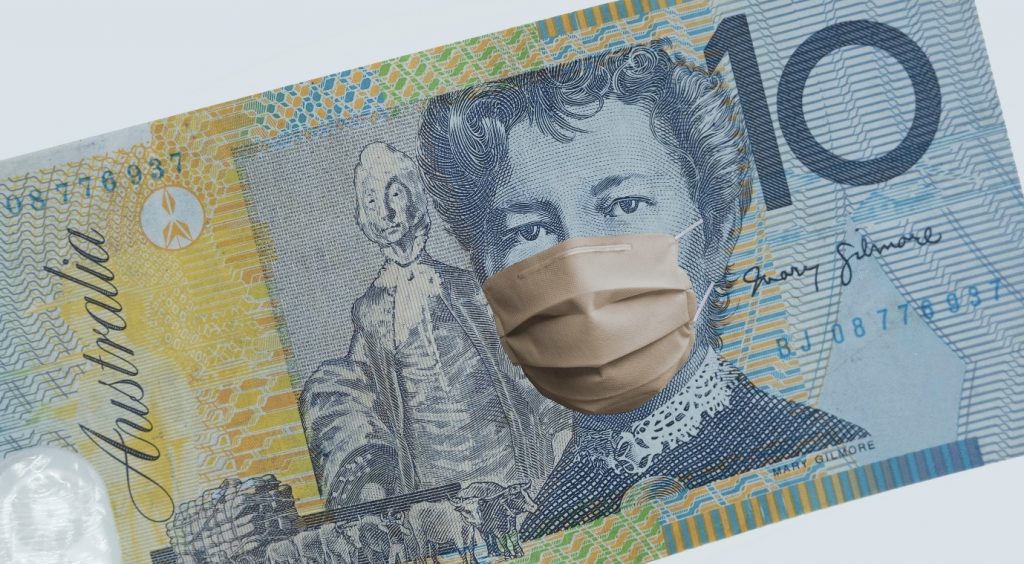After spending 107 days in lockdown, the successful rollout of the COVID-19 vaccination has enabled Sydney and New South Wales residents to taste freedom. Restrictions were eased on October 11th, meaning people could once again travel overseas, eat out, go shopping, meet up with friends and use facilities like gyms.
Australia was forced into this strict lockdown to limit the spread of the COVID-19 Delta variant, that took hold in mid-June 2021. Up until this point, the country boasted a six-month period in which there were almost no reported coronavirus cases and no deaths caused by the virus.
It was estimated in September, that recurrent lockdowns had cost the Australian economy around AU$28 billion, because of the fact that many sectors were unable to operate during the lockdown period, that began on the June 26th.
Of course, now that the country has reopened the areas of the economy that previously lay dormant, the nation can begin to recover from its four-month lockdown period and get back on track.
The health of a nation’s economy and the value of its currency, are directly linked and in July 2021, sparked by a rise in COVID-19 cases and concern over an extended lockdown, the Australian dollar (AUD) fell sharply, to a seven-month low.
In this article, we will take a look at how the lifting of lockdowns in Australia could further affect the value of the Australian dollar.
What restrictions have been eased?
One of the biggest and most significant changes that was made on October 11th was the reopening of Australia’s borders. Since the beginning of the pandemic, Australia has enforced some of the world’s longest and strictest border control strategies, which not only impacted their economy, grounding planes and disabling Australian tourism, it also meant that loved ones were separated. October’s easing of restrictions saw the borders open for the first time in 20 months.
This means that permanent Australian citizens who are fully vaccinated can return to Australia, or leave the country without obtaining travel ban exemption from the government. Additionally, vaccinated nationals who are returning to the country will not be required to quarantine in a hotel for two weeks, since this now only applies to unvaccinated individuals.
On what was classed as ‘Freedom Day’, retail was once again able to reopen in Sydney and New South Wales, and cafes and bars welcomed vaccinated Australians inside. In addition, many workers were able to return to the office, many children returned to school, and salons and gyms reopened.
Australia’s approach is more tentative than other countries that have eased restrictions, and so limits on mass gatherings and a ban on international entry into the country will remain, in order to keep a handle on the spread of the virus. The government has announced that more restrictions will be lifted once 80% of the country is fully vaccinated.
The Australian dollar
Following the easing of restrictions in Australia’s major cities, the Australian dollar rose in value by 0.24%, experiencing a three-week high. The easing of restrictions caused economic activity to rise, unemployment to fall — as individuals returned to work— and therefore, increased optimism in the foreign exchange (forex) market.
When trading currencies in the forex market, it’s vital that you understand that price changes can be influenced by a range of different factors. This could include the health of a country’s economy, political events or scheduled events that take place in the economic calendar. You could take part in Plus500 forex trading, for example, and speculate on the value of some of the world’s most popular currency pairs including the Australian dollar against the US dollar (AUD/USD).
Many Australians will once again be able to taste freedom as the country learns to live with COVID-19. The future looks optimistic for the country, since the vaccination rollout is proving successful and 77.5% of individuals aged 16 or over are fully vaccinated.
Looking ahead, there are feelings of optimism with regards to Australia’s economy and should lockdown restrictions continue to ease, the country is likely to make a strong recovery. Of course, factors could arise that could disrupt the country’s economic rebound and therefore, it’s vital that you keep on top of news updates, use an economic calendar and understand the factors that can cause currency prices to change when trading in the forex market.

“Entrepreneur. Freelance introvert. Creator. Passionate reader. Certified beer ninja. Food nerd.”






More Stories
Tougher tax competition may lead to lower corporate taxes in the future – Economy – svenska.yle.fi
Qvantum appoints Philip Ord as CEO of UK operations
Volta Trucks is preparing to return to Europe in 2024 – PROFFS Magazine